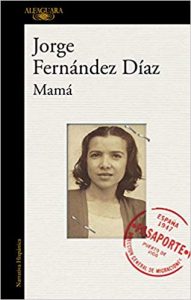The theme of this novel is disguised under the title of a famous song by The Clash, "Should I stay or should I go?" (Should I stay or should I go?) It is because of that connotation of doubt, that mixture of hope and dark certainty that nothing invites you to stay in what was your land and home.
Emigration has been an alienating phenomenon since the time of Moses. Once the mat is done, behind are memories, homesickness and an undeniable point of resentment for the incomplete life project in front of others who force you or impelled by adverse circumstances.
Y Jorge Fernández Díaz addresses the dilemma of migration with a strange feeling back and forth, under a practically chronistic style that ends up penetrating our skin thanks to its finally fictionalized presentation exuberant in details, descriptions and above all, feelings of the protagonists. Because it is about chapters of his own mother's life, scraps of misery and that inheritance narrated as a vital experience in survival tightrope walk.
From the Asturias submerged in the deepest dictatorship of Franco, the future seemed to be smudged with the black of the coal of the region. The future of a country family did not invite us to think that something could be slightly better, so the youngest of the house, Carmen, still a minor, embarks for Argentina, waiting for the rest of the family to follow her.
But no one arrives and the other side of the world seems an inhospitable place where the young woman can only strive to survive. With the deepest determination of a young woman in the not very favorable social circumstances of Argentina ruled by Perón, Carmen finds that replica of a home raised little by little thanks to her vital imprint.
And in this new existence, out of nowhere, we find other interesting characters that revolve around that mother who generates hope but is undoubtedly tied to that resignation, to that remote rupture that nests in the heart of every migrant.
The author himself also makes his cameo as the son of Carmen, finding under the protection of the mother figure that kind of vital justification halfway between a kind of inherited uprooting and the natural awareness of someone who already has the clear path to write his life .
From the days of Carmen to the days of her children, from Spain and Argentina who went to today's new countries. Homelands almost always raised from the strongest will, that of those who had to rebuild their lives leaving their first home yesterday, today and forever.
You can now buy the novel Mamá, one of Jorge Fernández Díaz's most interesting and personal books, here:

